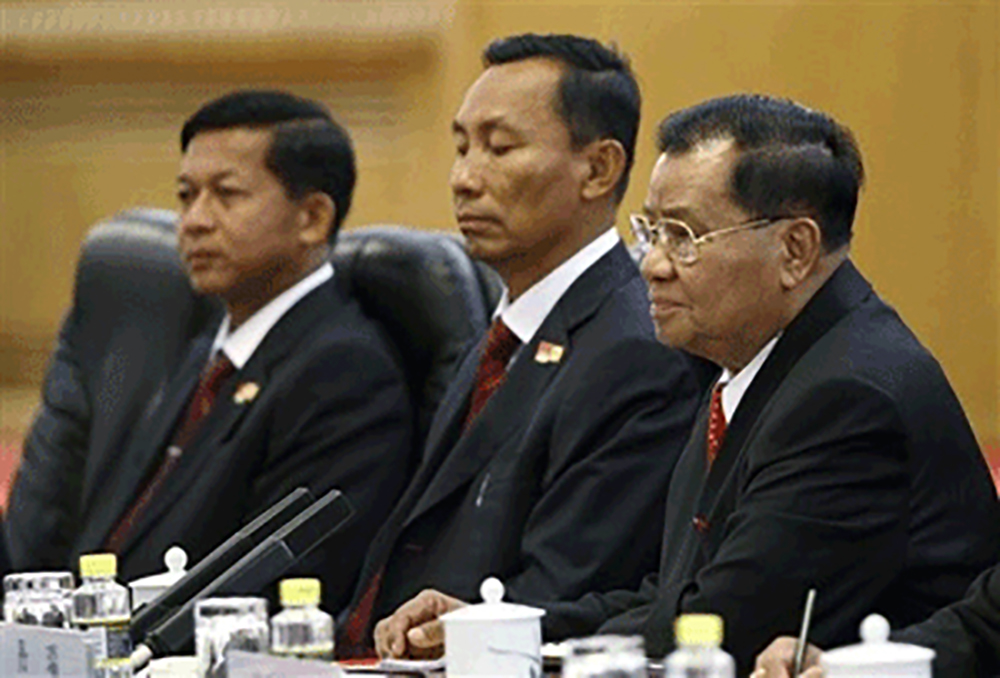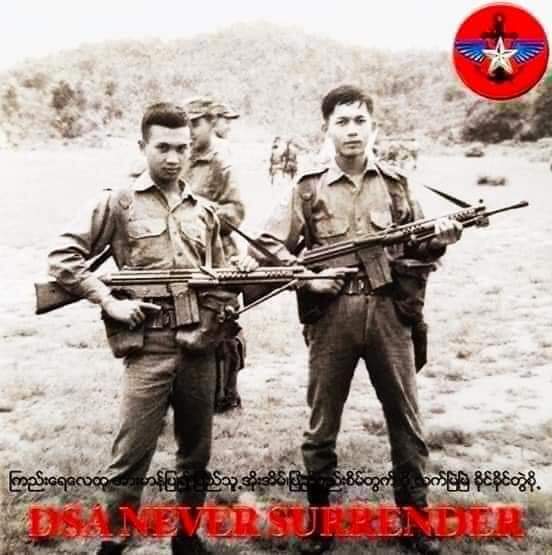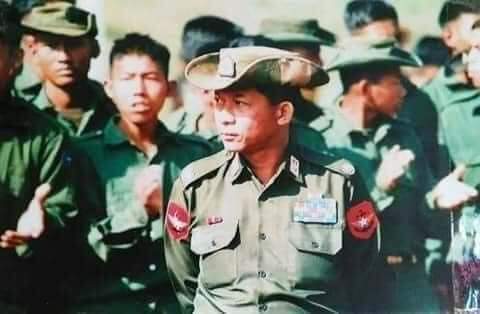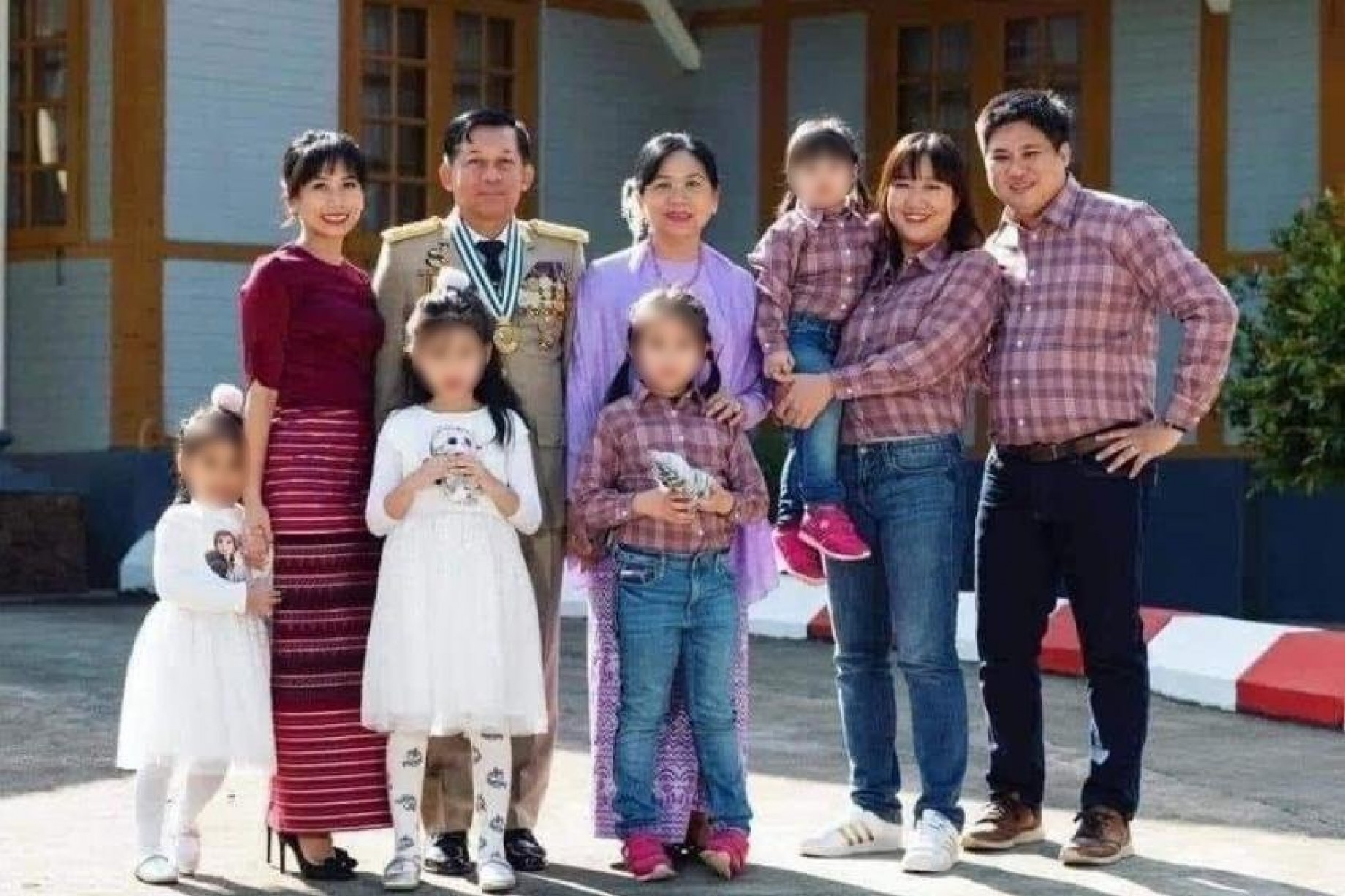Most people in Myanmar believe Min Aung Hlaing’s craving for power was solely responsible for last year’s coup. While people are well aware of the rights violations committed by the military over previous decades, they were still shocked and angered by the extent of violence used against civilians since the coup last February.
In the early days of military rule, protesters were shot in the head. Senior citizens and children were among those killed in junta raids. Some civilians were burned alive and others tortured to death. The atrocities fueled hatred for the military. A fish rots from the head and junta soldiers would not have committed these crimes unless permitted by Min Aung Hlaing.
People have seen the true colors of Min Aung Hlaing but this behavior is familiar to those who have followed the junta leader’s career.
Min Aung Hlaing’s ingratitude
Former foreign affairs minister U Win Aung wrote a recommendation letter for Min Aung Hlaing to join the Defense Services Academy (DSA), which was required at the time for officers to apply.

U Win Aung served in military intelligence and was appointed foreign minister in a previous military regime, the State Law and Order Restoration Council.
Both U Win Aung and Min Aung Hlaing’s parents came from Dawei in Tanintharyi Region and were friends.
But after Min Aung Hlaing became military chief, he ordered the prosecution of U Thaung Su Nyein, U Win Aung’s son, in 2016 with a charge for which bail is not granted. The military also filed a lawsuit against 7 Day Media, founded by U Thaung Su Nyein.

The prosecution related to an article that quoted a Facebook post by former parliament speaker and ex-general U Shwe Mann urging DSA graduates to cooperate with the newly elected National League for Democracy government.
Min Aung Hlaing ordered the prosecution of U Thaung Su Nyein and his reporter for allegedly inciting mutiny. Journalists criticized the military’s decision to prosecute 7 Day and insisted the report had violated no law.
A minister in U Thein Sein’s quasi-civilian government, who knew what U Win Aung had done for Min Aung Hlaing, remarked on the commander-in-chief’s lack of gratitude.
Min Aung Hlaing’s hostages
Since last year’s coup, the regime has abducted the relatives of anti-regime activists and striking government employees when it has failed to find them at home.
This is nothing new for Min Aung Hlaing.
He had the pregnant wife of an absent sergeant imprisoned after the NCO was accused of embezzling salaries. Min Aung Hlaing then commanded a Light Infantry battalion in Homalin Township, Sagaing Region, overseen by the Northwestern Command.

Colonel Kyaw Thu of Kale Regional Operations Command, which oversaw Min Aung Hlaing’s battalion, later chaired the Union Civil Service Board under President Thein Sein.
Col. Kyaw Thu found the pregnant woman in the battalion jail during a visit. Min Aung Hlaing claimed that he had detained her because her husband, who was responsible for distributing salaries, had fled with the wages, according to a battalion officer.
“He released her only after Colonel Kyaw Thu said it was pointless to detain a woman because her husband had fled and ordered her release,” said the officer.
The woman had been jailed for a month.
Those familiar with this story were not surprised to find activists’ relatives being seized after the coup.
Min Aung Hlaing’s greed
Some retired officers claim Min Aung Hlaing is more greedy than Myanmar’s previous military chiefs.
His predecessors and their children were not normally directly involved in military businesses and they did not use military personnel in their businesses while paying them from public funds.
Even dictator Than Shwe did not allow his children to directly run businesses linked to the military, according to business sources. He did, however, acquire shares and commissions from companies with military links.
But after Min Aung Hlaing became commander-in-chief, his children set up companies with military links.
It became mandatory for personnel to buy life insurance from Aung Myint Moh Min Co, which is owned by Min Aung Hlaing’s son Aung Pyae Sone.
He also runs the Kan Thar Yar hospital on Pyay Road, built on military-owned land in Yangon. About 90 percent of staff at the hospital are military personnel who are paid government salaries, according to medics.

The hospital only gives a small percentage of its profits to its medical staff. A medic at the hospital says medics are paid between 500 and 1,000 kyats per patient compared to around 5,000 to 8,000 kyats at private hospitals.
However, it remains a popular posting because it means medics do not have to live in barracks and can work at other hospitals and clinics in Yangon while gaining valuable contact with the senior officers being treated at the hospital.
Min Aung Hlaing’s daughter owns Moe Kaung Maternity and Children’s Hospital, which was also built on military land and whose staff are also serving personnel paid by the military.
Same Sky Construction Co, owned by Aung Pyae Sone, has won numerous military construction contracts. His other companies are major military suppliers.
Min Aung Hlaing’s children became Myanmar’s top cronies within five years of his promotion as commander-in-chief.
International observers agree deep ties between military leaders and business weakens the capabilities of armed forces. The feeble performance of Myanmar’s military, when faced with numerous insurgencies across the country, appears to support this conclusion.

















